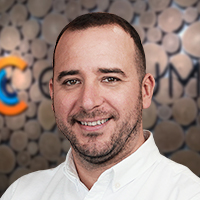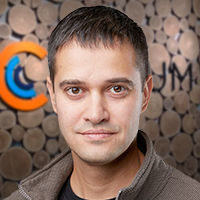NVIDIA WEBINAR
Sub brand
Date: Thursday, January 23, 2020
Time: 9:00am – 10:00am PST
Duration: 1 Hour
Time: 9:00am – 10:00am PST
Duration: 1 Hour
Augmented analytics and AI are increasingly used to make decisions in place of humans. How do we get empowered and not overpowered by AI, so we can exploit our data to become a more cognitive organization? Join our panel of data, analytics and AI experts as they discuss the top trends for 2020 including how machine learning is helping with credit risk scoring, how computer vision optimizes the claims process and reduces the risk of fraud and the rise of the Virtual CFO.
- Key use cases for augmented analytics and AI in Financial Services
- Impacts of AI solutions on people, decision-making and governance
- Technology solutions and products to support cognitive BFSI organizations
- How to take the first step in the AI journey
Join us after the presentation for a live Q&A session.
 |
WEBINAR REGISTRATION
THANK YOU FOR REGISTERING FOR THE WEBINAR
You will receive an email with instructions on how to join the webinar shortly.
Main Content
maincontent goes here
Content
Content goes here
Content
content goes here
Content
Content goes here
Content
DGX Station Whitepaper
Dive deeper into the DGX Station and learn more about the architecture, NVLink, frameworks, tools and more.
Dive deeper into the DGX Station and learn more about the architecture, NVLink, frameworks, tools and more.
DGX Station Whitepaper
Dive deeper into the DGX Station and learn more about the architecture, NVLink, frameworks, tools and more.
Dive deeper into the DGX Station and learn more about the architecture, NVLink, frameworks, tools and more.
Content
Content goes here
Speakers

Hugh Simpson
Global Solutions Lead for Data & Analytics, AI, and Industry 4.0, CiklumHugh is assisting the clients to become data-driven organizations. Previously he worked for EY consulting clients on IoT and Data Analytics.

Anton Popov
AI/Deep Learning Technical Lead, CiklumAnton is an Associate Professor of Electronic Engineering Department of Igor Sykorsky Kyiv Polytechnic Institute (Ukraine), and IEEE Senior Member. He is responsible for running the business-driven deep learning and NLP/chatbots practice in Ciklum, and growing expertise in this domain. Anton Popov has a Ph.D. in biomedical systems and devices, and authored 150 publications in peer-reviewed journals and conference proceedings.

Alexander Kuzmenko
Data Science & Machine Learning Technical Lead, CiklumAlexander has experience in software development, compilers design & development and high-performance solutions implementation. He is responsible for running predictive analytics, natural language processing and recommendation systems projects and developing this expertise in Ciklum.

Mark Bennett
High Performance Computing & Machine Learning Solutions Architect, NVIDIAAfter graduating with his Ph.D. in computer science from UCLA, Mark Bennett began telecom and aerospace software engineering and project management at AT&T Bell Labs and Northrop Grumman. He next transitioned over to financial engineering for Chicago Research and Trading, Bank of America Securities, XR Trading and is currently at NVIDIA Corporation where he focuses on high performance computing and machine learning. Mark is an adjunct lecturer in business analytics for the University of Iowa and co-authored Financial Analytics with R published by Cambridge University Press in 2016.
Other Speakers
Name1
Job Title.
Job Title.
Name 2
Job Title.
Job Title.
Name 3
Job Title.
Job Title.
Content Title
Content here